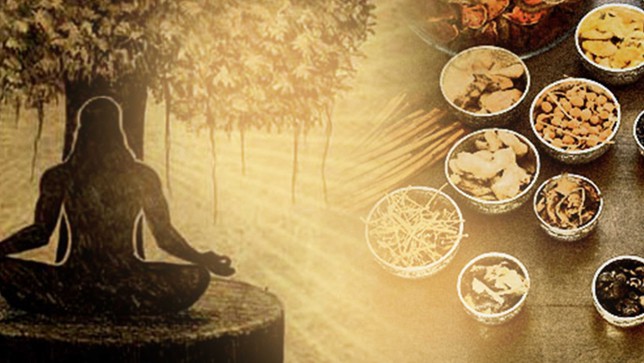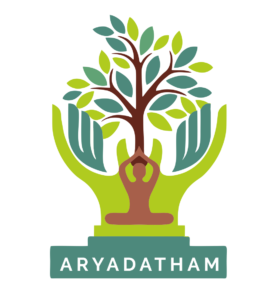
What is Ayurveda?
Ayurveda is an age-old medical system based on scientific principles that has been practiced for over 3000 years in the Indian subcontinent. This holistic science that believes in maintaining of health, prevention of disease by taking care of mind, body and soul mindfully as well as treatment for any disease that may arise with the help of organic herbo-mineral medications as well as external and internal therapies. Hence Ayurveda is considered to be the science of life.
Why is Kerala famous for ayurveda?
Over the years, Kerala has achieved recognition globally for Ayurveda, mainly because Keralites generally accept Ayurveda as a way of life ingrained in them due to years of conditioning. There are several traditional families in Kerala who practice Ayurveda and have passed down their knowledge to their offsprings and thus kept the traditional medicinal practice alive. The awareness of the efficacy of this medical system and the preference of the public in taking Ayurvedic treatment is more compared to the other states. There are several professional Ayurvedic Colleges in Kerala that offer a rigorous five and a half year professional graduate course and post graduate courses in the same stream.
The State Government is also highly supportive towards promoting this science with several schemes implemented for the public to receive free and quality ayurvedic medical care.
How does it work?
According to Ayurvedic beliefs, just as everyone has a unique fingerprint, each person has a distinct pattern of energy, a specific combination of physical, mental, and emotional characteristics. Ayurvedic practitioners also believe there are three basic energy types called doshas, present in every person:
• Vata. Energy that controls bodily functions associated with motion, including blood circulation, breathing, blinking, and heartbeat. When vata energy is balanced, there is creativity and vitality. Out of balance, vata produces fear and anxiety.
• Pitta. Energy that controls the body’s metabolic systems, including digestion, absorption, nutrition, and temperature. In balance, pitta leads to contentment and intelligence. Out of balance, pitta can cause ulcers and arouse anger.
• Kapha. Energy that controls growth in the body. It supplies water to all body parts, moisturizes the skin, and maintains the immune system. In balance, kapha is expressed as love and forgiveness. Out of balance, kapha leads to insecurity and envy.
Everyone has vata, pitta, and kapha. But usually 1 or 2 are dominant in a particular person. Many things can disturb the energy balance, such as stress, an unhealthy diet, the weather, and strained family relationships. The disturbance shows up as disease. Ayurvedic practitioners prescribe treatments to bring the doshas back into balance.
From a Western medical perspective, stress relief seems to be one of the ways Ayurveda works to help fight illness. For example, studies have found that transcendental meditation (TM), a component of Maharishi Ayurveda, lowers anxiety. Other studies have found that Ayurveda lowers blood pressure and cholesterol, slows the aging process, and speeds recovery from illness. Many herbs used in Ayurvedic medicine have antioxidant effects, meaning they may help protect against long-term illnesses, such as heart disease and arthritis. Many Ayurvedic practitioners also recommend a vegetarian diet which is believed to be better for your heart than diets containing red meat.
What should I expect from an Ayurvedic treatment?
Ayurvedic treatment focuses on rebalancing the doshas. On your first visit, the practitioner will take a detailed medical history, check your pulse, feel your abdomen, examine your tongue, eyes, nails, and skin, and listen to the tone of your voice. The practitioner will also ask you questions about your general health, paying special attention to your lifestyle, diet, habits, and surroundings. The practitioner will then recommend ways to restore your natural dosha balance, which almost always includes changes in lifestyle, especially diet. Practitioners draw from more than 20 types of treatment. The most commonly prescribed include:
• Pranayama. Breathing exercises. Practicing pranayama helps you feel calm.
• Abhyanga. Rubbing the skin with herbal oil to increase blood circulation and draw toxins out of the body through the skin.
• Rasayana. Using mantras (repeated words or phrases) during meditation combined with certain herbs for rejuvenation.
• Yoga. Combining pranayama, movement, and meditation. Yoga has been shown to improve circulation and digestion, and to reduce blood pressure, cholesterol levels, anxiety, and chronic pain.
• Pancha karma. Cleansing the body to purify it and reduce cholesterol. Practitioners use methods that cause sweat, bowel movements, and even vomit to cleanse the body of toxins.
• Herbal medicines. Prescribing herbs to restore dosha balance.
What is Ayurveda good for?
The goal of Ayurvedic medicine is to prevent diseases. Studies have suggested that Ayurveda may be effective at reducing the risk of heart disease. For example, one study found that Ayurveda helped reduce plaque and reverse the thickening of artery walls known as atherosclerosis in both healthy adults, as well as adults at high risk for heart disease. Atherosclerosis is a slow, complex disease in which cholesterol, fats, and other substances build up in the inner lining of an artery. This buildup, known as plaque, can lead to heart attack and stroke.
Combining yoga with certain Ayurvedic herbal remedies may reduce pain and disability in people with chronic pain conditions, such as arthritis and fibromyalgia.
A number of Ayurvedic herbal remedies have been examined, though high-quality studies are lacking. For example, guggul (Commiphora mukul), a traditional Ayurvedic medication used to treat high cholesterol, is widely used in India. It appears to block production of cholesterol in the liver, lowering cholesterol levels. Fenugreek (Trigonella foenum graecum) seeds can lower LDL (bad) cholesterol and triglycerides (fats in the blood), and raise HDL (good) cholesterol levels. Its effects seem to come from its ability to lower the absorption of cholesterol in the intestine, and may be related to the high fiber content of the seed. The high fiber content of fenugreek seeds may also help control blood sugar if you have diabetes.
Other Ayurvedic herbs are being studied as treatments for many health conditions, including:
• Alzheimer disease
• Anxiety
• Asthma
• Cancer
• Dementia
• Dysmenorrhea (painful menstruation)
• Herpes
• High blood pressure
• Parkinson disease
• Perimenopausal problems
• Premenstrual syndrome (PMS)
Ayurvedic herbs combined with conventional medications may also be helpful for:
• Acne
• Chronic constipation
• Chronic fatigue syndrome (CFS)
• Irritable bowel syndrome (IBS)
• Obesity
• Uterine fibroids
Are there any risks?
Most Ayurvedic therapies, such as pranayama and rasayana, are unlikely to have negative side effects in people who are psychologically healthy. People with serious mental health issues may benefit from these therapies. But they should only pursue them under the guidance of a knowledgeable psychiatrist or psychologist.
Ayurvedic herbs may interact with medications. Like all herbs, they are not right for every person. So speak with your physician. In addition, heavy metals such as lead and mercury have contaminated some Ayurvedic herb supplements. Ask your health care provider about choosing quality supplements for you and your family. Be sure to talk to your doctor before trying Ayurveda, especially if you take medicines or have to eat a special diet (to control diabetes, for example).
Ready to Restore Harmony in Your Mind, Body, and Soul?
Information
Phone
+91 9947047362
aryadathamayurveda@gmail.com
Address
Aryadatham Ayurveda Chikithsalayam, Near Thirunarayanapuram temple , Mattarakkal p o, Thazhekkode via, Perinthalmanna Malappuram dt Kerala -679341
Copyright 2023 © All Right Reserved Aryadatham

